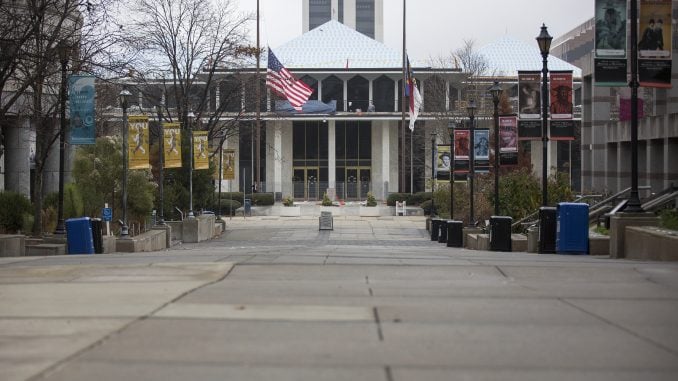
RALEIGH The heat is turning up on Gov. Roy Cooper this week as both Republicans and Democrats seek to end the standoff over the law that was triggered by a Charlotte city ordinance last year, dominating headlines and the November elections. Republicans have said that the ball is firmly in Cooper’s court to find a compromise after two previous deals have fallen apart.Three Democrat-sponsored H.B. 2 repeal bills were filed this week, each with different elements that put legal protections for the LGBT community into statute. Rep. Pricey Harrison (D-Guilford) is among the Democrats who proposed a measure. Hers is H.B. 82, which fully repeals H.B.2 and adds broad non-discrimination language for special groups including transgender, LGBT and veterans in public accommodations, employment, housing and credit. Harrison said that while she does not anticipate her bill will make it to the floor in the Republican-led House, she wants the measure out there to keep the anti-discrimination measures on the forefront.”We are just hoping to get this thing started because that’s where we think N.C. should be,” said Harrison in an interview.”I think everyone wants this resolved in a way that the majority of the members can agree to,” she added.Another measure filed this week, by Rep. Cecil Brockman (D-Guilford), repeals H.B. 2 but also increases criminal penalties for assaults in bathrooms and other public accommodations. That idea was circulated as part of other compromise legislation in December when lawmakers came to Raleigh for Hurricane Matthew relief measures but stayed to try to resolve the H.B. controversy.If a deal is struck, this will be the third time H.B. 2 repeal seemed within reach. The first two deals are said to have been nixed by Roy Cooper, first as a candidate, then as governor-elect.In December, the General Assembly was poised to repeal H.B. 2 during a special session, until an appearance by Rep. Chris Sgro (D-Guilford) on MSNBC indicated that ordinances similar to Charlotte’s were imminent across the state once H.B. 2 was repealed.”We are going to need comprehensive non-discrimination protections and unfortunately we can’t do that until H.B. 2 is repealed, not just in Charlotte, but in Raleigh, Greensboro, Wilmington and everywhere in between,” Sgro said on MSNBC in December.When that interview aired insiders say negotiations over a repeal came to a screeching halt. What finally circulated was a measure that contained a full repeal with a six-month moratorium on local ordinances similar to Charlotte’s. Billed as a cooling-off period, the measure was designed as a timeout in the political H.B. 2 game.Three people close to the negotiations have confirmed to the North State Journal that Senate Leader Phil Berger and Senate Minority Leader Dan Blue had rallied enough votes from both sides of the aisle to pass the H.B. 2 repeal with the moratorium in place, until Cooper called and asked the Democratic leadership to reject the deal.Back in May, the first repeal deal also failed. The Charlotte City Council was reportedly preparing to repeal its ordinance that started the controversy under an agreement with then-Gov. Pat McCrory. Republican lawmakers had repeatedly said in public that if Charlotte repealed the ordinance, the legislature would repeal H.B. 2. According to members of the city council who spoke on the condition of anonymity, then-Attorney General Cooper enlisted Democratic lawmakers to lobby them to reject rescinding the ordinance. As a result, the legislature did not go through with H.B. 2 repeal. Then, weeks after Cooper’s election Charlotte repealed its ordinance.Since inauguration, Cooper has lobbied almost daily to the media and the business community, saying that the GOP-led legislature failed to repeal H.B. 2 during the December special session, adding that he knows there were enough votes to pass the repeal without the moratorium. He has repeatedly called for passage of what he calls a “clean repeal,” without the cooling-off period. Cooper’s office has not responded to requests on whether he knows if there were enough votes to pass the repeal with the moratorium in place.In response to criticism and increased speculation this week that the NCAA could withdraw more athletic events from the state, Senate Leader Phil Berger said Cooper would “have to work toward a compromise that keeps women from being forced to share bathrooms and shower facilities with men to move past this distraction.”The NCAA said it expects to announce its site selections for upcoming seasons in April.



